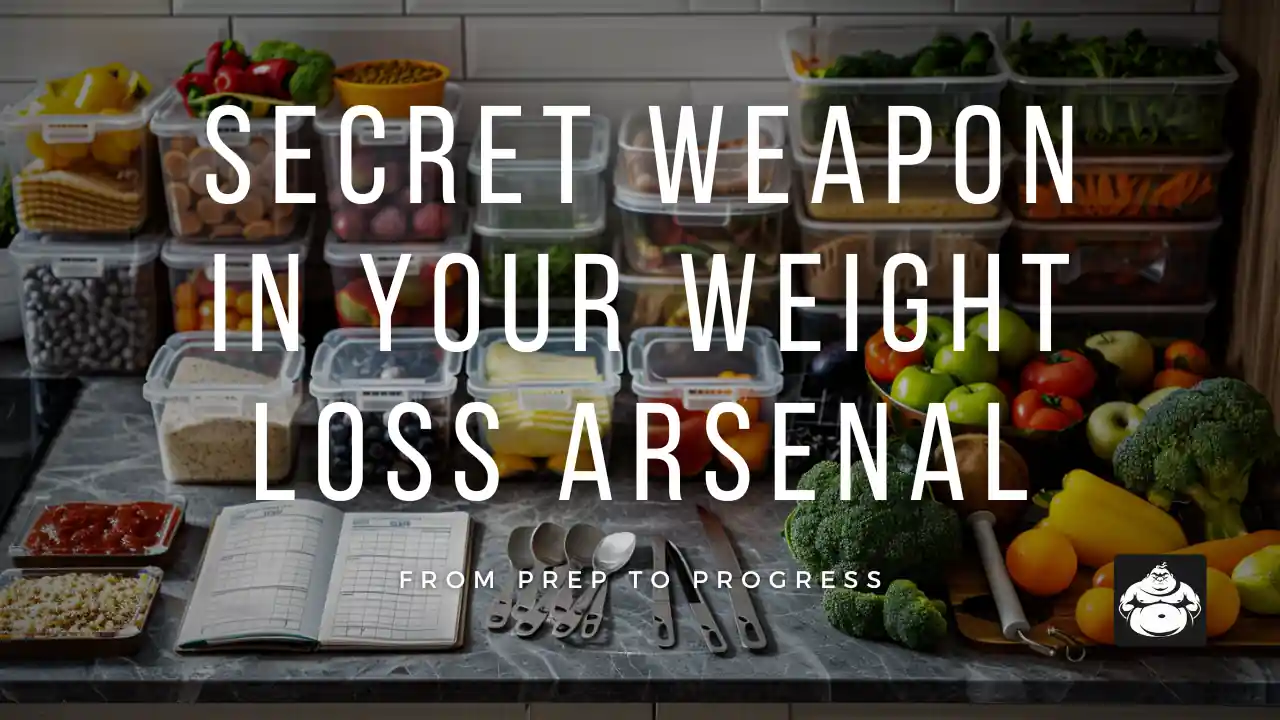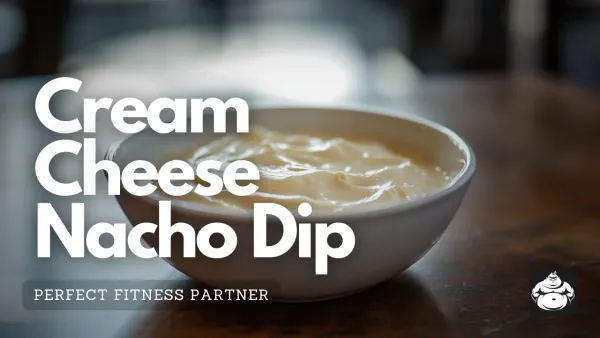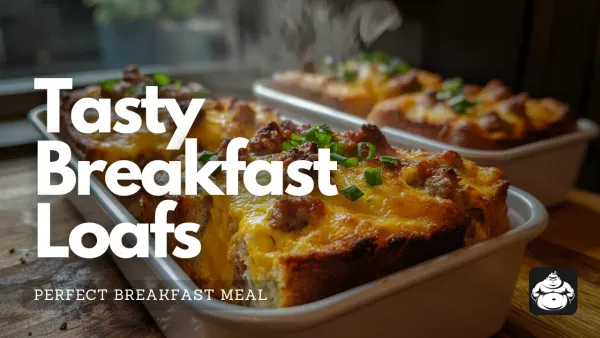Meal Prep Magic: Unlock Your Weight Loss Potential in the Kitchen
Boost your weight loss journey with expert meal prepping strategies that will revolutionize your approach to healthy eating.

When it comes to achieving your weight loss goals, meal prepping can be a game-changer. Imagine having nutritious meals ready to enjoy, effortlessly supporting your journey to a healthier you.
But what if there was a way to take your meal prepping skills to the next tier, optimizing your efforts for maximum weight loss results? Stay tuned to discover the strategic steps and insider tips that will enhance your meal prepping game and help you transform your eating habits for good.
Benefits of Meal Prepping
When it comes to the benefits of meal prepping for weight loss, you can anticipate saving time, incorporating nutrient-rich ingredients, and mastering portion control strategies.
By dedicating some time each week to plan and prepare your meals, you can streamline your eating habits and make sure you're fueling your body with the right foods.
These advantages support your weight loss goals and also assist you in staying on track with a healthier lifestyle overall.
Efficiency in the Kitchen: Mastering Time-Saving Meal Prep
Meal prepping provides significant time-saving benefits by ensuring you have convenient, ready-to-eat meals available throughout the week. By dedicating a specific meal prep day to plan and cook your meals, you can save time amidst busy weekdays.
Portion control becomes easier as you prepare meals in advance, helping you stick to your weight loss goals. This practice encourages healthy eating habits by having nutritious meals readily available, reducing the temptation to choose less healthy options.
Establishing a meal prep routine allows you to efficiently use ingredients, minimizing food waste and saving money in the long term. With healthy options prepared in advance, you can grab a balanced meal quickly, eliminating the need for last-minute unhealthy choices.
Fueling Your Body: Incorporating Nutrient-Dense Powerhouses

Prioritizing nutrient-dense ingredients in your meal prep routine is crucial for supporting your weight loss goals and overall health. By incorporating a variety of lean proteins, whole grains, fruits, and vegetables in your meals, you secure a balanced intake of essential nutrients.
These nutrient-packed foods not just help you feel full and satisfied but also provide your body with the necessary fuel for your weight loss journey. Including fiber-rich foods like whole grains, fruits, and vegetables can aid in digestion and contribute to a sense of fullness, making it easier to adhere to your calorie goals.
Moreover, a sustainable approach to weight loss involves creating meals that aren't just nourishing but also enjoyable. By including a mix of nutrient-dense ingredients and allowing for occasional treats in moderation, you can prevent feelings of deprivation and maintain a healthy relationship with food.
Mastering Portion Sizes: Strategies for Effortless Weight Management
Effective weight loss through meal prepping hinges on mastering portion control strategies to maximize calorie intake and nutrient balance. Portion control is important for weight loss, ensuring you don't overconsume even healthy foods. By pre-portioning meals while meal prepping, you can manage your calorie and nutrient intake effectively.
Focusing on pre-portioned meals is convenient choice that guarantees balanced meals conducive to weight loss. Choose to prepare fresh salads, grain bowls, and soups with wholesome ingredients to support healthy portion sizes.
Consistent portion control through meal prepping plays an essential role in regulating your metabolism and sustaining energy levels, ultimately promoting successful weight loss. Keep in mind, monitoring portion sizes, incorporating various food groups, and being mindful of calorie intake are key strategies to achieve your weight loss goals through meal prepping.
Charting Your Course: Setting Achievable Weight Loss Milestones

When beginning your weight loss journey, it's crucial to set specific and realistic objectives to guide your progress effectively. Here are some key points to take into account when establishing weight loss goals:
- Consulting a Healthcare Professional: Before starting on your weight loss path, think about consulting with a healthcare professional or nutritionist to help you establish appropriate and safe weight loss objectives customized to your individual needs.
- Setting Realistic Goals: Establish achievable objectives based on your current weight, health status, and lifestyle. Strive for a gradual weight reduction of 1-2 pounds per week to maintain a healthy pace and enhance your chances of long-term success.
- Tracking Progress: Monitor your progress regularly by tracking your weight, measurements, and overall well-being. Keeping a journal or using apps can assist you in staying motivated and on course for achieving your weight loss objectives.
- Adjusting Goals: Be open to modifying your weight loss objectives as required. Regularly reassessing and making essential changes guarantees ongoing progress and success on your weight loss path.
Blueprint for Success: Strategically Planning Meals and Snacks
Think about integrating a variety of nutrient-dense foods like fruits, vegetables, lean proteins, and whole grains into your meal and snack planning to support your weight loss goals effectively.
To plan meals and snacks for weight loss success, contemplate the following:
- Meal Prep Ideas: Dedicate time each week to plan and prepare your meals in advance to save time and stay on track with your goals.
- Calorie Range: Calculate your daily calorie needs based on your weight loss objectives and portion your meals accordingly to stay within your calorie range.
- Portion Sizes: Use measuring cups, food scales, or visual cues to make sure you're consuming appropriate portion sizes to avoid overeating.
- Healthy Fats: Include sources of healthy fats like avocados, nuts, and olive oil in your meals to promote satiety and overall well-being.
- Monitoring Progress: Regularly track your meals, snacks, and progress toward your weight loss goals to make necessary adjustments and stay motivated on your journey.
Container Optimization: Selecting the Perfect Tools for Meal Prep
Choose leak-resistant containers with compartments when selecting the right containers for meal prepping to ensure easy portioning and prevent spills.
When assessing containers for your meal prep requirements, keep the following tips in mind:
- Select microwave-safe containers to facilitate convenient reheating.
- Pick dishwasher-safe options for easy cleaning post-meal.
- Opt for sturdy glass containers that provide longevity and easy maintenance.
- Invest in reusable containers to decrease waste and support sustainability efforts.
- Label containers with dates and contents for efficient organization throughout meal prep sessions.
Amplifying Results: Leveraging Meal Prep for Maximum Weight Loss
To maximize weight loss through meal prepping, prioritize nutrient-rich foods in balanced portions. This approach supports calorie management, essential for effective weight loss.
By focusing on healthy eating habits and portion control throughout meal prep, you can work toward sustainable weight loss and achieve your long-term weight loss goals.
Incorporating a variety of nutrient-rich foods like lean proteins, whole grains, and plenty of vegetables helps make certain that your meals are both satisfying and beneficial for weight loss.
Planning your meals in advance and portioning them out can prevent overeating and support your weight loss progress.
Sustaining Success: Strategies for Long-Term Weight Management

To maintain weight loss effectively, track your progress consistently, adjusting portions as needed to support your goals.
Dedicate weekly planning sessions to stay organized and guarantee your meals align with your weight maintenance objectives.
Employ meal containers to help with portion control and organization, setting yourself up for continued success in maintaining your hard-earned weight loss.
Track Progress Consistently
Consistently monitoring your progress is vital for maintaining weight loss and staying on track with your health objectives. By tracking your journey, you can ensure responsibility and make well-informed decisions to support your long-term triumph.
Here are some key points to contemplate when tracking your progress:
- Regularly monitor your food intake to stay mindful of your calorie intake.
- Keep tabs on your physical activity levels to guarantee you're meeting your exercise targets.
- Use tracking tools to document your weight, measurements, and changes in habits for valuable perspectives.
- Identify triggers for overeating or deviations from healthy habits through progress monitoring.
- Employ apps or journals to streamline the process and help you stay focused on your weight maintenance objectives.
Adjust Portions as Needed
When it comes to maintaining weight loss, adjusting your portions as needed plays a vital role in managing your calorie intake effectively. Portion control is key to regulating your calorie intake and supporting weight management.
Tailoring your portion sizes based on your activity level ensures an energy balance that aligns with your goals. Consistent portion sizes help in sustaining your weight loss progress over time.
By monitoring your portion sizes carefully, you can prevent weight regain and promote long-term success in your weight management journey. Keep in mind, adjusting your portions as needed isn't about deprivation but about finding the right balance to support your body's needs while still achieving your desired outcomes.
Weekly Planning Sessions
Engage in weekly planning sessions to effectively sustain weight loss by dedicating focused time to strategize your meals and snacks. These sessions are vital for staying on track with your weight loss goals.
Here are some key benefits of incorporating weekly planning sessions into your meal prepping routine:
- Tracking Food Intake: Monitoring what you consume during these sessions helps you make informed decisions and stay accountable.
- Variety and Balance: Planning for a mix of different foods ensures you get a diverse range of nutrients and prevents monotony in your meals.
- Meal Planners: Using meal planners can help you stay organized and efficiently map out your meals for the week.
- Grocery Lists: Creating detailed grocery lists during your planning sessions guarantees you have all the ingredients you need, reducing last-minute stress.
- Long-Term Success: By dedicating time each week to plan your meals, you set yourself up for consistent, healthy eating habits that support your weight loss journey in the long haul.
Organize Meal Containers

Efficiently organizing your meal containers plays an essential role in maintaining your weight loss progress and supporting healthy eating habits in the long run. When it comes to meal containers, contemplate the following tips to aid in your weight management journey:
| Feature | Description | Benefits |
|---|---|---|
| Portioning | Divide meals in advance | Helps maintain weight goals |
| Balanced Meals | Compartments for variety | Supports balanced nutrition |
| Labels | Date and contents marked | Easy identification |





